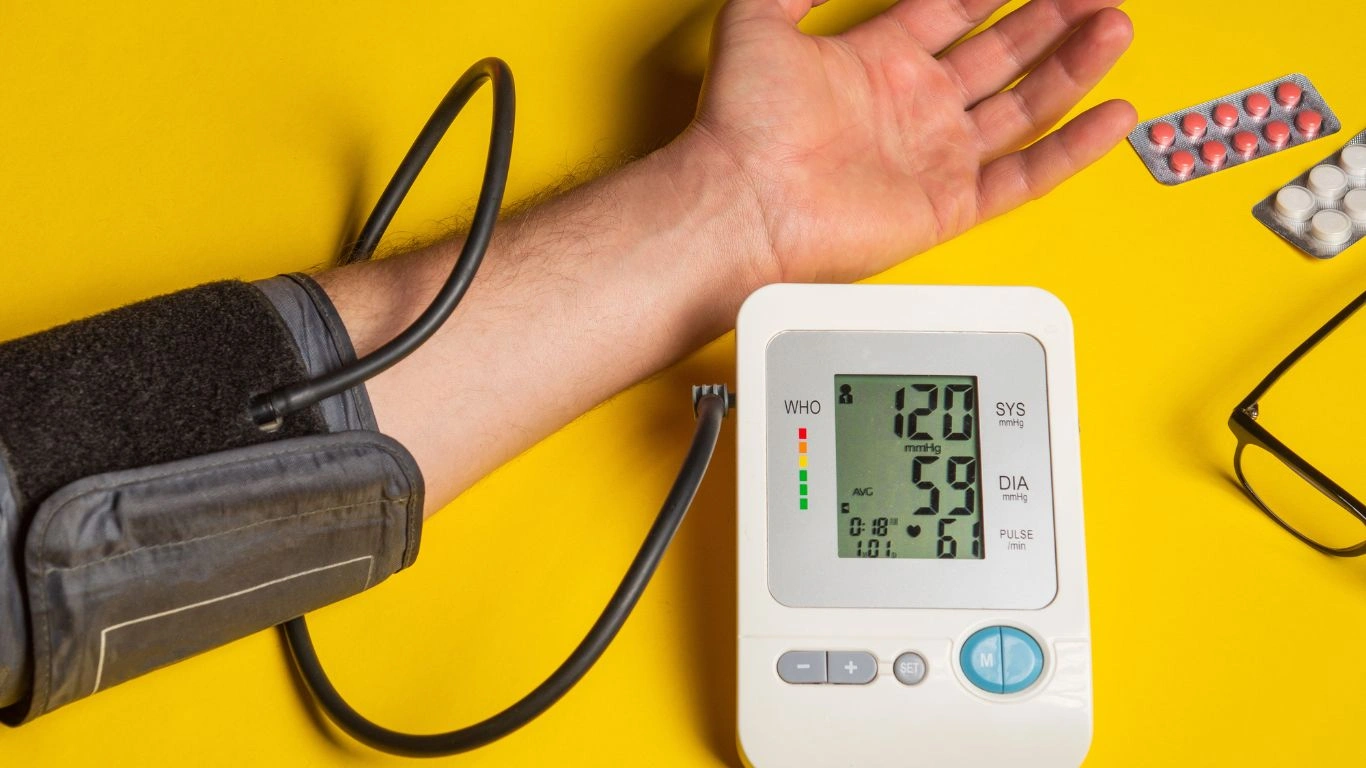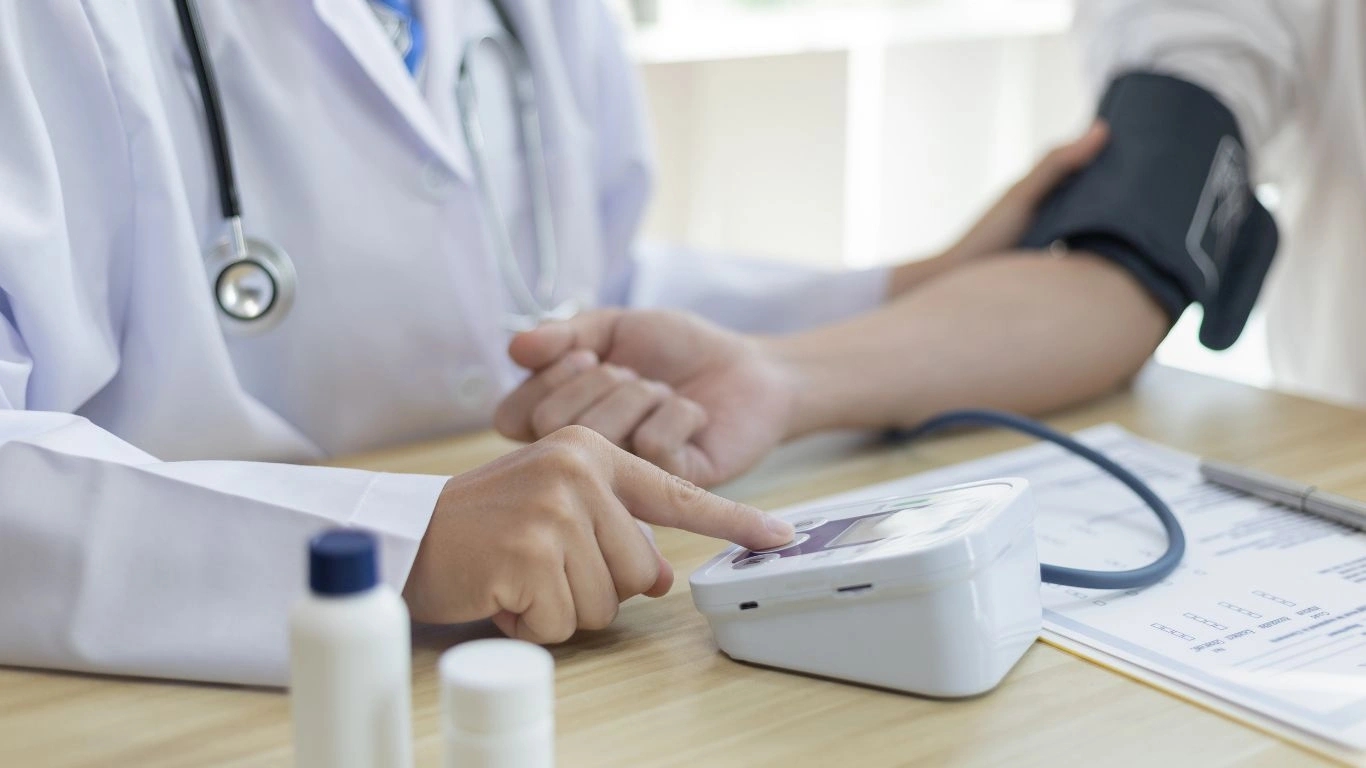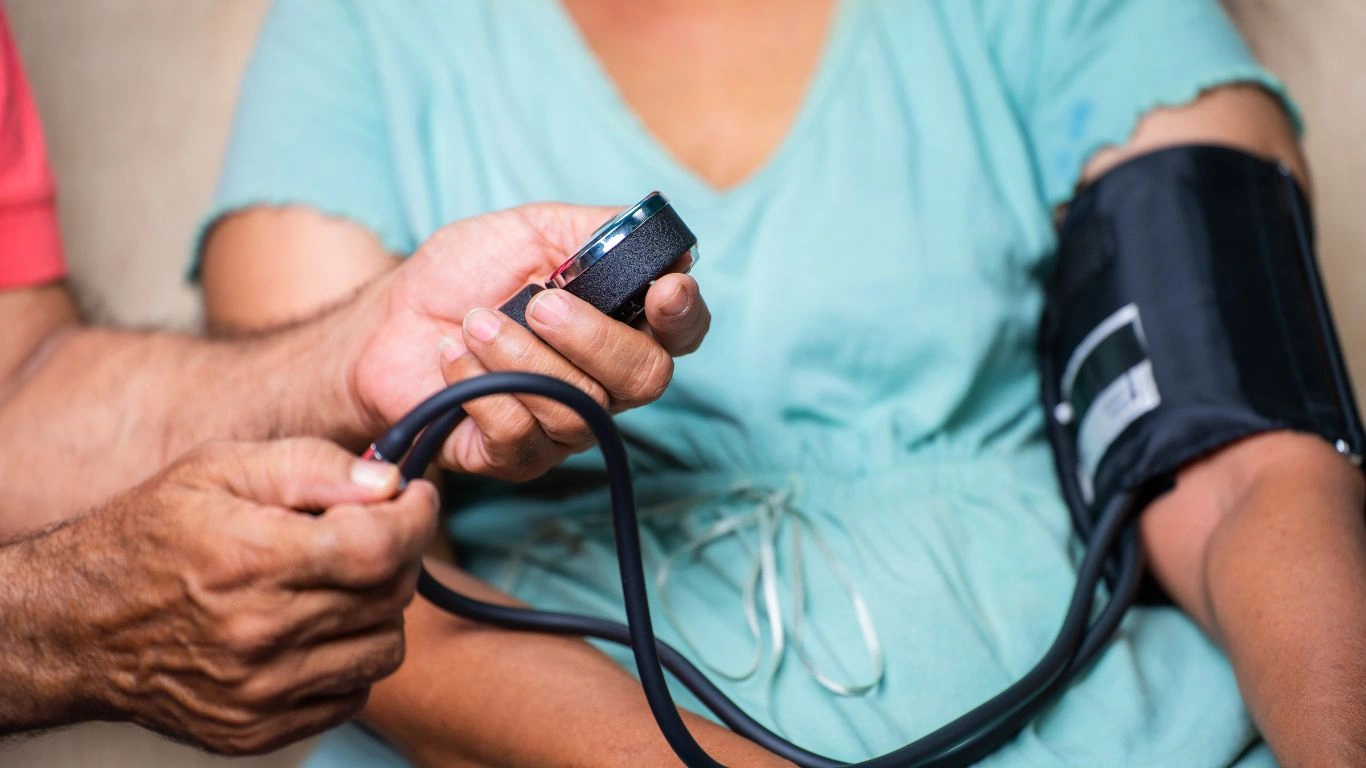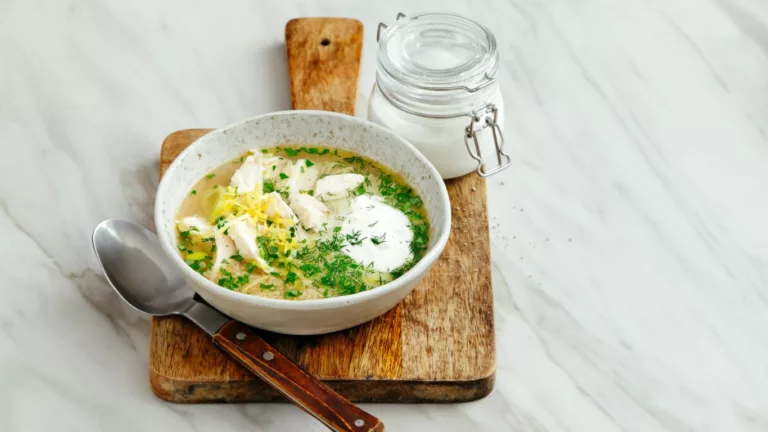The Benefits of Flaxseed for Managing Hypertension: A Natural, Powerful Solution
Managing hypertension is something I know a lot about, given my background in Internal Medicine with a special focus on Hypertension Management. One of the things I’ve seen firsthand is how small lifestyle changes can make a big difference for people struggling with high blood pressure. Today, we’re going to dive into something that might surprise you but could have a significant impact on your health: the benefits of flaxseed for managing hypertension. If you’re looking to reduce your blood pressure naturally, then flaxseeds might just be a superfood worth adding to your diet. Let’s break it down!
What Makes Flaxseed So Beneficial for Hypertension?
Flaxseed, often regarded as a tiny powerhouse of nutrients, packs a serious punch when it comes to managing hypertension. You may be wondering, “How can something so small help with my blood pressure?” Well, the answer lies in its rich nutritional profile. Flaxseed is loaded with omega-3 fatty acids, fiber, and lignans, all of which have been shown to help lower blood pressure levels. As a physician, I’ve seen patients who incorporate flaxseed into their diet experience noticeable improvements in their readings over time.

Omega-3 Fatty Acids: Heart Health Superheroes
Let’s talk omega-3 fatty acids. These essential fats are well-known for their ability to improve heart health, and studies have shown that they can help reduce both systolic and diastolic blood pressure. Omega-3 fatty acids are found in abundance in flaxseed, and when you consume them, they work to relax the blood vessels and reduce inflammation, which in turn lowers blood pressure.
Now, I’ve worked with patients who didn’t necessarily have a high intake of omega-3s in their diet, and adding flaxseed was one of the easiest ways to help boost their levels. Whether you sprinkle them on your cereal or blend them into smoothies, these small seeds make a big difference!
The Power of Fiber in Flaxseed
Another key reason why flaxseed is so beneficial for hypertension is its fiber content. Flaxseed is an excellent source of both soluble and insoluble fiber. Soluble fiber, in particular, has been shown to help reduce cholesterol levels and improve overall cardiovascular health, which is a huge factor in managing hypertension. By lowering your cholesterol, you also reduce the strain on your heart, which helps keep your blood pressure in check.
What I love about fiber is that it doesn’t just impact one area of health; it improves your digestion, regulates blood sugar levels, and even helps in weight management. The more I work with patients, the more I see how fiber-rich foods like flaxseed can be an easy yet effective addition to your daily routine. And it’s not just about lowering blood pressure; it’s about enhancing overall wellness.
How to Add Flaxseed to Your Diet
If you’re wondering how to incorporate flaxseed into your daily diet, don’t worry, it’s easier than you think! Flaxseeds are incredibly versatile and can be added to a variety of foods. You can choose from ground flaxseeds or flaxseed oil, but I recommend ground flaxseeds for better absorption. Here are a few ideas:
- Sprinkle on Your Cereal: Start your day by adding a spoonful of ground flaxseed to your cereal or oatmeal.
- Blend into Smoothies: Add flaxseed to your morning smoothie for a nutrient boost. It blends well and doesn’t overpower the flavor.
- Mix into Yogurt: Stir flaxseed into yogurt for a crunchy texture and added health benefits.
- Bake with It: You can also add ground flaxseeds to your baked goods, such as muffins, breads, or pancakes. It’s a great way to sneak in extra nutrients without changing the taste much.

As a busy professional, I get it. We’re all juggling a million things, and adding another step to our routine might seem like a hassle. But trust me when I say, taking a few seconds to sprinkle some flaxseeds on your meals can really add up in terms of health benefits over time.
Flaxseed Oil vs. Ground Flaxseed
One question I often get from patients is whether to use flaxseed oil or ground flaxseeds. While both have their benefits, there are some differences. Flaxseed oil is rich in omega-3 fatty acids, but it doesn’t contain fiber or lignans, which are essential for the full range of health benefits. On the other hand, ground flaxseeds provide a complete package with fiber, omega-3s, and lignans.
For overall health, I recommend going with ground flaxseed if you can. It’s more versatile and offers more nutritional value, but if you prefer flaxseed oil, it’s still a beneficial option, especially for those who are looking for an easy way to add omega-3s to their diet. The key is to find what works for you!
Scientific Backing: Flaxseed’s Impact on Blood Pressure
As a physician, I always like to back up health advice with science. Studies have shown that flaxseed can indeed have a positive impact on blood pressure. A study published in the American Journal of Hypertension found that daily flaxseed consumption led to a reduction in both systolic and diastolic blood pressure in individuals with hypertension. Other studies have similarly supported these findings, showing that flaxseed’s omega-3 fatty acids, fiber, and lignans contribute to improved cardiovascular function.
It’s not just theory – the research backs it up. I’ve seen patients who have been able to reduce their reliance on medication by incorporating flaxseed into their diet, in conjunction with other lifestyle changes. Of course, every case is different, and I always recommend working with your doctor to develop a treatment plan that’s right for you.

Real-Life Experiences with Flaxseed
I’ve had patients come to me after months of incorporating flaxseed into their routine, and the results speak for themselves. One of my patients, a 55-year-old woman with mild hypertension, started adding flaxseed to her daily smoothie. After about three months, her blood pressure readings had improved significantly, and she was able to lower her dosage of medication. While flaxseed isn’t a magic bullet, it’s definitely a valuable tool in managing hypertension.
Another patient, a man in his 60s, added flaxseed to his daily diet as part of a broader lifestyle overhaul. After six months of regular flaxseed consumption, alongside increased physical activity and a more balanced diet, his blood pressure was at its lowest point in years. His results weren’t just about flaxseed, but the overall improvements he made. It’s a good reminder that small changes, when added together, can have a big impact.
Flaxseed and Other Lifestyle Changes: A Holistic Approach to Managing Hypertension
While flaxseed is a fantastic addition to your diet, it’s essential to remember that managing hypertension is about more than just one food. In my years of working in the field of hypertension management, I’ve seen time and time again that the best results come from combining a healthy diet with other lifestyle changes. The good news? Flaxseed fits seamlessly into an overall healthy lifestyle. It’s not a magic bullet, but it’s certainly a key player in the broader picture of managing your blood pressure.

Exercise and Physical Activity: Pairing Flaxseed with Movement
As someone who has worked with patients at all stages of hypertension, I can tell you that exercise is one of the most powerful tools at your disposal. While flaxseed is a great dietary addition, it should be paired with physical activity for optimal results. Exercise helps improve circulation, strengthens the heart, and lowers both systolic and diastolic blood pressure. When you combine regular physical activity with the inclusion of flaxseed in your diet, you create a powerful synergy that can really make a difference.
When I discuss exercise with my patients, I always remind them that it doesn’t have to be intense. Even something as simple as a daily 30-minute walk can significantly improve heart health and contribute to lower blood pressure. The idea is to stay consistent, so finding an activity you enjoy is key. Whether it’s swimming, cycling, or just a leisurely walk in the park, it all adds up. And the beauty of incorporating flaxseed? It’s an easy addition to your daily routine that doesn’t require any extra time or effort.
Healthy Eating Habits: How Flaxseed Fits In
We all know that a well-balanced diet is essential for heart health, but let’s face it—sometimes it’s hard to eat the way we should. With busy schedules and tempting processed foods, sticking to healthy eating habits can feel challenging. But that’s where flaxseed shines. It’s incredibly easy to integrate into a variety of meals, and it’s packed with heart-healthy nutrients that can help keep your blood pressure in check.
One of the most powerful dietary changes you can make is reducing sodium intake. As a physician, I’ve seen firsthand how high sodium levels can cause an increase in blood pressure. Flaxseed can help counteract this because it’s naturally low in sodium and high in potassium, which helps regulate blood pressure. Pairing flaxseed with a diet rich in fruits, vegetables, and whole grains provides an even more potent combination for lowering hypertension.
Incorporating more plant-based foods into your diet can also have a significant impact. A plant-based diet is naturally high in fiber and antioxidants, which are fantastic for your cardiovascular health. So, if you’re already eating more plant-based meals, adding flaxseed can enhance the benefits even further. As I often tell my patients, it’s not about perfection—it’s about progress and making small, sustainable changes that add up over time.
Potential Side Effects of Flaxseed: What You Should Know
As much as I love recommending flaxseed to my patients, I also want to make sure everyone understands that, like anything, it’s important to use it responsibly. While flaxseed is generally safe for most people, there are some potential side effects and considerations to keep in mind. For one, flaxseeds are high in fiber, and while fiber is fantastic for your health, it can cause digestive issues like bloating or gas if consumed in excess, especially for individuals not used to a high-fiber diet. So, if you’re new to flaxseed, it’s best to start slowly and increase your intake gradually.
Another consideration is that flaxseeds contain phytoestrogens—plant compounds that mimic the hormone estrogen in the body. While most people tolerate them well, those with hormone-sensitive conditions should consult with their doctor before increasing flaxseed intake. I’ve had a few patients ask me about this, especially women who are managing conditions like breast cancer or endometriosis. Again, the key here is to talk to your healthcare provider if you have any concerns.
Lastly, it’s important to note that flaxseed should be ground in order for your body to absorb its nutrients properly. Whole flaxseeds are often not digested well, so they pass through the digestive system without delivering the full nutritional benefits. I always recommend grinding them at home or purchasing pre-ground flaxseeds to ensure you’re getting the most out of them.
Flaxseed and Other Supplements: What Works Together?
Some of my patients ask me if they can take flaxseed alongside other supplements, and my answer is usually yes, but with some guidance. Flaxseed pairs well with several other heart-healthy supplements, such as omega-3 fish oil and magnesium. Omega-3s from fish oil and flaxseed are both excellent for reducing inflammation, improving cholesterol levels, and lowering blood pressure. If you’re already taking fish oil supplements, adding flaxseed could offer additional benefits.
Magnesium is another supplement that works well alongside flaxseed. Magnesium helps relax blood vessels and regulate blood pressure, and many people are deficient in magnesium. I’ve seen a lot of success with combining magnesium supplementation and flaxseed for patients who are working to control their hypertension. But, as always, it’s essential to talk to your doctor before adding any new supplements to your regimen to ensure they don’t interact with other medications you might be taking.

Flaxseed’s Role in Long-Term Hypertension Management
Flaxseed isn’t just a quick fix for managing hypertension—it’s part of a long-term strategy for maintaining heart health. Over the years, I’ve seen patients who have been able to manage their blood pressure more effectively by making sustainable lifestyle changes, and flaxseed plays a big role in this. The beauty of flaxseed is that it’s an easy and affordable addition to your diet, and it doesn’t require any major lifestyle overhauls to reap the benefits.
However, it’s important to keep in mind that managing hypertension is a marathon, not a sprint. It’s about consistency and making small, positive changes every day. Flaxseed may not provide an instant miracle, but with regular use, you can expect to see gradual improvements in your blood pressure over time. And while it’s never a substitute for medications or other treatments prescribed by your doctor, it can certainly complement your existing treatment plan.

Monitoring Your Blood Pressure: Tracking the Progress
As you incorporate flaxseed into your diet and lifestyle, it’s a good idea to regularly monitor your blood pressure to track your progress. I’ve found that many patients find it motivating to see their numbers improve over time. It also gives you a clear idea of how well your lifestyle changes are working. With tools like home blood pressure monitors, it’s easy to keep tabs on your readings and adjust your habits accordingly.
Also, don’t forget to check in with your healthcare provider. It’s essential to have regular check-ups and discuss how your blood pressure management plan is going. Your doctor can help you adjust your treatment plan if needed, and ensure that you’re on the right path toward achieving and maintaining healthy blood pressure levels.
Combining Flaxseed with Stress Management: A Holistic Approach to Hypertension
As a physician, I can’t stress enough how much the mind-body connection plays a role in managing hypertension. While diet and exercise are crucial, managing stress is equally important. When we’re stressed, our bodies release hormones that can cause blood pressure to spike. Flaxseed can certainly help improve your overall heart health, but coupling it with stress management techniques can truly make a significant difference. After all, you can eat all the flaxseed you want, but if stress is constantly elevating your blood pressure, it will be a constant battle.

Why Stress Is a Silent Contributor to Hypertension
Over the years, I’ve noticed that many people underestimate the impact of stress on their blood pressure. It’s easy to assume that high blood pressure is primarily due to what we eat or how active we are. But stress can cause chronic increases in blood pressure by stimulating the sympathetic nervous system, leading to heightened heart rates and constriction of blood vessels. This is why, as much as I emphasize flaxseed and other lifestyle changes, managing stress is equally important for those looking to control their hypertension.
In my experience, patients who incorporate stress-relief techniques like mindfulness, meditation, yoga, or even simple breathing exercises alongside dietary improvements, such as adding flaxseed, see more consistent and lasting results. While it’s understandable that stress is a part of life, learning how to manage it is a game-changer for blood pressure control.
Simple Stress-Reduction Techniques You Can Start Today
If you’re not sure where to start with stress management, I’ve got a few simple techniques that can help lower your stress levels:
- Mindful Breathing: Take a few minutes each day to focus on deep, slow breathing. This has been shown to activate the parasympathetic nervous system, which helps lower stress and reduce blood pressure.
- Progressive Muscle Relaxation (PMR): Tense and release different muscle groups in your body. This technique is great for releasing tension and calming your nervous system.
- Yoga or Tai Chi: These low-impact exercises combine movement with mindfulness, helping to reduce stress and improve flexibility, strength, and overall well-being.
- Nature Walks: Spending time in nature is a simple but effective way to unwind and reduce stress levels. I always recommend my patients take short walks in natural settings when possible.
Integrating just a few of these stress-management techniques into your daily routine, alongside a heart-healthy diet and the inclusion of flaxseed, can create a holistic approach that works wonders over time. Not only will you be addressing your blood pressure, but you’ll also be nurturing your overall health.
Additional Considerations When Using Flaxseed for Hypertension
While flaxseed is generally considered safe for most individuals, it’s important to note a few additional considerations. The primary thing to be aware of is how flaxseed might interact with certain medications or conditions. As much as flaxseed can help with blood pressure regulation, it’s always best to check with your healthcare provider before making any significant dietary changes.
Flaxseed and Medications: A Word of Caution
If you’re currently on blood pressure medication, you might be wondering if flaxseed will interfere with your treatment. In general, flaxseed is safe and can even complement blood pressure medication by providing additional support. However, flaxseed has mild blood-thinning properties, so if you’re on anticoagulants (like warfarin) or other medications that affect blood clotting, it’s essential to talk to your doctor before increasing flaxseed in your diet. Additionally, flaxseed can sometimes interact with medications for diabetes or cholesterol, so if you’re taking those types of drugs, I suggest discussing flaxseed’s role with your doctor.
Can Flaxseed Be Beneficial for People with Other Conditions?
Flaxseed’s benefits aren’t limited to hypertension. Research has also shown that flaxseed can help with conditions like high cholesterol, diabetes, and even certain types of cancer. Its high fiber content, rich omega-3 fatty acids, and lignans work together to support various aspects of health, particularly in relation to the cardiovascular system. If you have any of these conditions, you might find that flaxseed is a helpful addition to your daily routine. However, just like with hypertension, it’s always a good idea to check in with your doctor before incorporating a new supplement into your diet.
References
For those interested in diving deeper into the science behind flaxseed and its effects on hypertension, here are some helpful resources:
- The Role of Flaxseed in Cardiovascular Disease Management
- Flaxseed and Hypertension: A Review of the Evidence
- Health Benefits of Flaxseed: A Comprehensive Guide
Disclaimer
While the information provided in this article is based on my professional experience and current research, it is important to note that it should not be considered a substitute for personalized medical advice. Always consult with your healthcare provider before making any significant changes to your diet or medication, particularly if you have any underlying medical conditions or are on prescribed treatments. The results of adding flaxseed or making any other dietary changes can vary from person to person, and it’s essential to work with your doctor to ensure that your hypertension management plan is tailored to your specific needs.

Dr. Gwenna Aazee is a board-certified Internal Medicine Physician with a special focus on hypertension management, chronic disease prevention, and patient education. With years of experience in both clinical practice and medical writing, she’s passionate about turning evidence-based medicine into accessible, actionable advice. Through her work at Healthusias.com, Dr. Aazee empowers readers to take charge of their health with confidence and clarity. Off the clock, she enjoys deep dives into nutrition research, long walks with her rescue pup, and simplifying medical jargon one article at a time.







